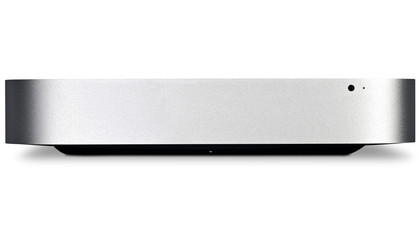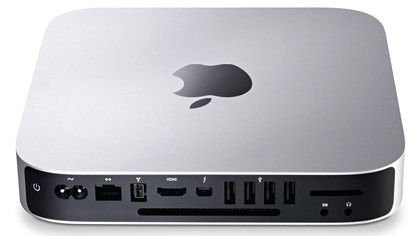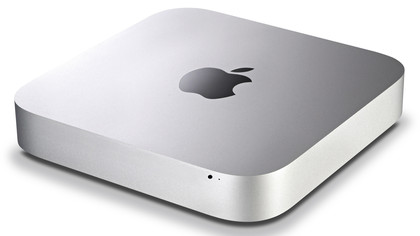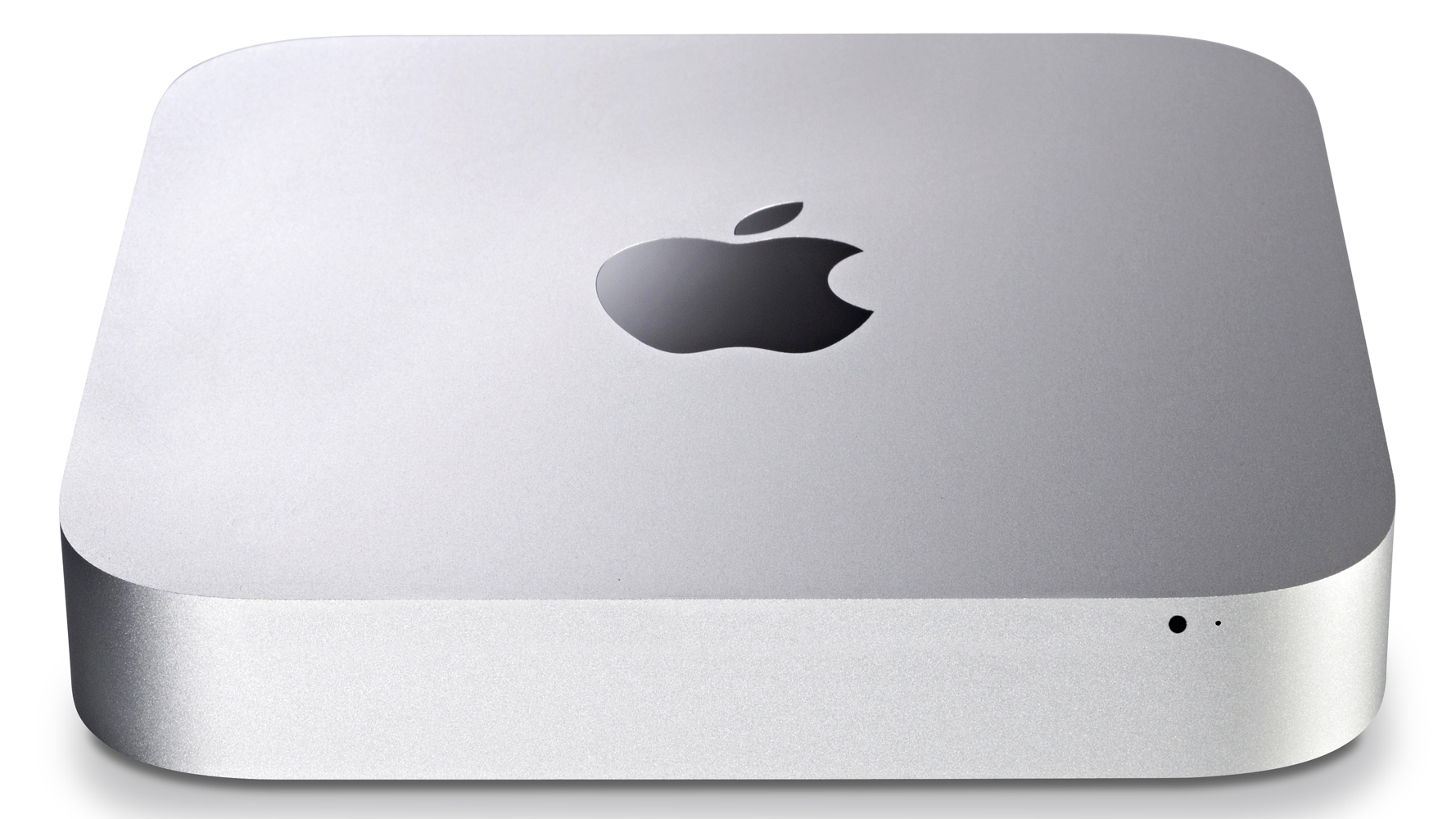Why you can trust TechRadar
The two 2012 Mac minis have Ivy Bridge processors, with a 2.5GHz dual-core Intel Core i5 processor in the entry-level model, and a 2.3GHz quad-core Intel Core i7 for the more expensive one. This is up from the previous generation, which used 2.3GHz and 2.5GHz dual-core Intel Core i5 chips respectively.
The new processors feature Hyper-Threading, enabling two threads to run on each core, for four virtual cores on the entry-level dual core chip and eight on the more expensive quad core model.
At times of high needs, Turbo Boost enables the processors to temporarily operate above their maximum clock speed. The 2.5GHz Intel Core i5 can reach up to 3.1GHz under Turbo Boost, and the 2.3GHz Core i7 can manage 3.6GHz.

Overall, the new processors represent a welcome step up for the entry-level model, and a very significant increase in power for the more expensive Apple Mac mini.
Once again, the Mac mini has a single Thunderbolt port, a versatile I/O protocol that can handle video as well as data. With two 10Gbps channels, it's up to 12 times faster than FireWire 800 and up to 20 times faster than USB 2.0.
You can daisy chain up to six devices to a single Thunderbolt port, and it can even handle two Apple displays. If you've got an older Apple screen that uses a Mini DisplayPort connection, you can plug it straight into the Thunderbolt port with no adaptors required. Alternatively, there's an HDMI port, which is ideal to connect your Mac mini to an HD TV or a monitor.

Like the previous generation, the new Mac mini has four USB ports, but they now use the high-speed USB 3.0 protocol. As before, there's an Ethernet port, FireWire 800, an SD XC card slot and sockets for audio in and audio out.
Sign up to the TechRadar Pro newsletter to get all the top news, opinion, features and guidance your business needs to succeed!
For wireless connectivity there's 802.11n Wi-Fi internet and Bluetooth 4.0.
If you order on the Apple online store, you can upgrade the memory in either Mac mini model from 4GB to 8GB or 16GB.

Opt for the more expensive of the two models, and further configuration options are available. The processor can be upgraded to a 2.6GHz quad-core Intel Core i7, and the 1TB hard disc drive can be replaced by a 256GB solid state drive or a new 1TB Apple Fusion Drive.
The Fusion Drive combines 128GB of solid state storage with a 1TB hard drive. By storing the operating system, regularly used applications and commonly accessed files on the flash section of the drive and everything else on the hard drive, a Fusion Drive gives near-SSD speeds without compromising on storage capacity.
